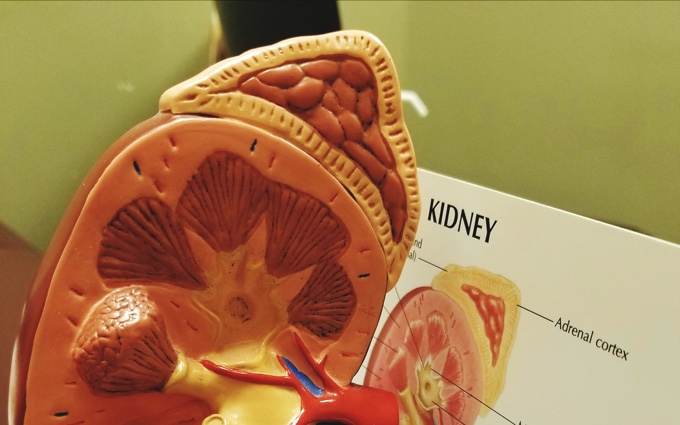When Should I Go to the Emergency Room for a Kidney Stone?
Over half a million people each year are treated in emergency rooms for kidney stones. More than one in ten people will develop them at some point in their lives, and they are more common in men than in women. Kidney stones can be extremely painful and frightening, and symptoms can come on suddenly. It is important to be aware of the risk factors and symptoms so you can seek appropriate medical attention, including urgent or emergency care when warranted.
What are kidney stones?
If there is a chemical imbalance, such as too much calcium or too much uric acid in your urine, small crystals can develop in your kidneys. Over time, these crystals grow in size. These crystals usually resolve without any symptoms or medical intervention. If they do not resolve, they can continue to grow and become kidney stones. Kidney stones can be as small as a grain of sand or as large as a golf ball.
Once formed, stones may stay in the kidney and not cause problems. If a stone moves into the ureter, the tube between the kidney and the bladder that carries urine, it can become stuck in the ureter and block urine from flowing from that kidney to the bladder. This can cause pain and other symptoms, possibly requiring emergency medical attention.
The Four Different Types of Kidney Stones:
- Calcium (the vast majority, over 80% of stones): Caused by too much calcium in the urine over time
- Uric Acid: Caused by a buildup of uric acid in the urine
- Struvite: Caused by chronic urinary tract infections or a kidney infection
- Cystine (very rare, fewer than 1% of stones)
Caused by an excess of the amino acid cystine in the urine, usually resulting from a genetic disorder
What are the risk factors for kidney stones?
Anyone can develop kidney stones but there are certain behaviors and conditions that increase your risk, such as:
- Dehydration or not consuming enough water: Low urine volume can lead to the development of kidney stones
- Obesity: Being overweight can alter the acid levels in the urine, leading to stone formation
- Diabetes: High blood sugar can lead to uric acid buildup and the formation of stones
- High blood pressure
- Poor diet
Consuming too much sodium can cause in increase in urine calcium
- Bowel conditions such as ulcerative colitis or Crohn’s disease: Diarrhea can lead to dehydration and lower urine volume
- Having previous kidney stones
- Family history of kidney stones
People who live in warmer climates are more likely to develop kidney stones because they are at an increased risk for dehydration and concentrated urine. High levels of calcium in the urine are generally NOT caused by dietary calcium and patients should NOT avoid calcium-rich foods for fear of developing kidney stones.
What are the symptoms of kidney stones?
Kidney stones may cause a wide range of symptoms, including:
- Sharp pain in the abdomen, back, genitals, or groin
- Intense urge to urinate
- Fever and chills
- Nausea and/or vomiting
- For men, pain at the tip of the penis
When should you go to the ER for a suspected kidney stone?
Suspected mild kidney stones can be treated by urgent care providers like Pivotal Health, potentially with fluids and medication. The severity of your pain and symptoms is a reasonable guide to help you determine whether you should get help from urgent care or an emergency room. If you experience any of the following symptoms, you should seek emergency care:
- Fever higher than 101.5 degrees Fahrenheit
- Excruciating pain
- High-risk, chronic conditions such as diabetes or kidney disease
- Burning sensation while urinating
- Cloudy or red urine
How are kidney stones diagnosed by an urgent care or emergency room clinician?
Your provider may conduct the following tests if they suspect a kidney stone:
- Blood tests: To determine if a medical condition is causing your stones
- Urine tests: To screen for urinary tract infections or the presence of crystals that lead to the formation of certain types of stones
- Imaging: X-ray, CT scan or ultrasound to determine if there are stones in your urinary tract
How are kidney stones treated by an urgent care or emergency room clinician?
- Wait for the stone to pass
- Medications (like Flomax) that may help the stone to pass
- Shock wave therapy to break up the stone
- Surgery
Surgery is necessary if the stone fails to pass, causes intolerable pain, or obstructs normal kidney function. The stone can inhibit normal kidney function by either causing infection or directly obstructing urine flow from the kidney.
Kidney stones can cause a lot of pain as they pass. Your provider can prescribe pain medications to help ease this process, and also to help treat any infections that might be present.
How can you prevent kidney stones?
There are several precautionary measures you can take to reduce your risk of developing kidney stones. They include:
- Reduce your dietary salt intake
- Eat plenty of fruits and vegetables
- Drink enough fluids
- Consume the recommended amount of calcium
- Eat less meat
- Treat urinary tract or kidney infections promptly
- Be cautious in your consumption of nutritional supplements, including vitamins
Getting Help From Pivotal Health
If you’re experiencing symptoms of a kidney stone, connect with Pivotal Health to discuss your potential treatment options based on your symptoms. Our experienced triage support and clinicians will help you determine if you need emergency care or can be seen in the comfort of your home, on your own schedule, by a licensed Pivotal Health provider.
Pivotal Health clinicians can diagnose kidney stones, order imaging, prescribe medications, and create a treatment plan for you. All Pivotal Health clinician visits, including for kidney stones, include follow-up consultation to ensure you’re on the road to recovery.












